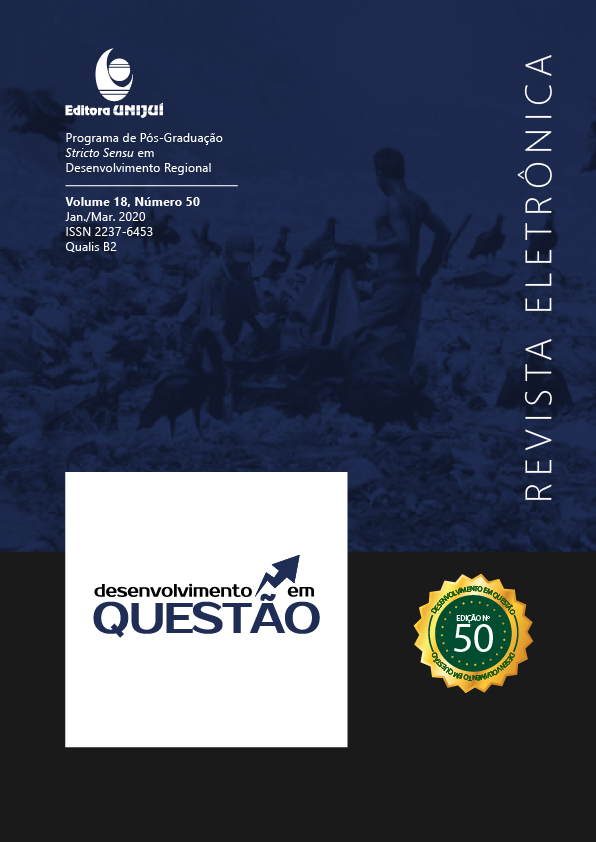WASTE GENERATED IN THE FAVELAS: IMPACTS ON THE RIGHT TO ADEQUATE HOUSING, THE ENVIRONMENT AND SOCIETY
DOI:
https://doi.org/10.21527/2237-6453.2020.50.325-342Keywords:
Slum, solid and liquid wastes, sanitation, diseasesAbstract
This research proposes to identify the problems generated by the management of waste in a shanty town belonging to the region of the Multisectorial Pole of Maceió (AL). It’s intended to observe the reflexes of this management in the health of the individuals who live there, its relation with the basin of drainage of rainwater and the routine of activities inherent to the Pole. For that, field surveys were carried out, questionnaires were applied, interviews and photographic records were carried out. Based on these data, it was possible to verify that the community in study, because its sewage interconnected to a drainage basin, directly contributes to the generation of impacts that reach issues related to the flow of rainwater, to basic sanitation and, in turn, to health of the inhabitants of the region. The situation of the residents affects too the Sustainable Development objective n. 6 of the United Nations Agenda 2030. It is possible, through the right to adequate housing parameter, to understand the complexity of the impacts of a poor sanitation system on the range of human rights that the state must protect. Thus, this work has its justification, given the scientific and social importance of discussing the planning for waste management, given that approximately 183.5 thousand tons of solid waste/day are generated, according to 2012 data from the Research Institute Applied Economics, IPEA, as well as a water consumption that reaches 165.3 liters/inhabitant/day, which will become liquid waste. Therefore, studying the mechanisms of how to deal with these wastes is of the utmost importance.
Downloads
Published
How to Cite
Issue
Section
License
By publishing in Revista Desenvolvimento em Questão, authors agree to the following terms:
All works are published under the Creative Commons Attribution 4.0 International License (CC BY 4.0), which allows:
Sharing — to copy and redistribute the material in any medium or format;
Adaptation — to remix, transform, and build upon the material for any purpose, even commercially.
These permissions are irrevocable, provided that the following terms are respected:
Attribution — authors must be properly credited, a link to the license must be provided, and any changes made must be indicated.
No additional restrictions — no legal or technological measures may be applied that legally restrict others from doing anything the license permits.
Notices:
The license does not apply to elements that are in the public domain or covered by legal exceptions.
The license does not grant all necessary rights for specific uses (e.g., image rights, privacy, or moral rights).
The journal is not responsible for the opinions expressed in the articles, which are the sole responsibility of the authors. The Editor, with the support of the Editorial Board, reserves the right to suggest or request modifications when necessary.
Only original scientific articles presenting research results of interest that have not been previously published or simultaneously submitted to another journal with the same purpose will be accepted.
Mentions of trademarks or specific products are intended solely for identification purposes and do not imply any promotional relationship by the authors or the journal.
License Agreement (for articles published from 2025 onward): Authors retain the copyright to their article and grant Revista Desenvolvimento em Questão the right of first publication.











